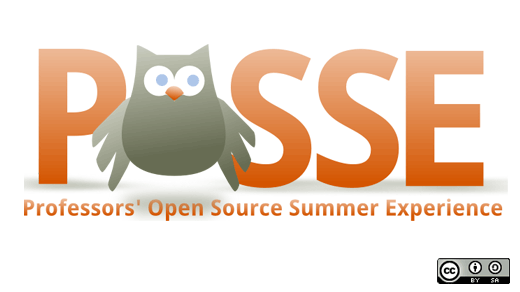This week, professors Heidi J. C. Ellis and Gregory W. Hislop will try to convince eight of their peers to teach their classes the open source way.
They have until Friday to succeed.
Ellis, Chair and Professor in the Department of Computer Science and Information Technology at Western New England University in Springfield, MA, and Hislop, Associate Dean in the College of Computing and Informatics at Drexel University in Philadelphia, PA, are co-organizers of the Professors' Open Source Summer Experience (POSSE), an annual conference that invites educators from across the country to learn how they can incorporate open source tools—and open source values—into their classrooms. It begins May 28 at Drexel University.
POSSE brings together educators from a variety of fields who are interested in leveraging the benefits of open source software, development models, and communities in their classes. The conference conveys best practices for, say, teaching students to use community mailing lists, accessing open source code in publicly-available repositories, and licensing work for reuse by others. It also helps teachers understand how integrating open source into their curricula might prompt them to rethink their pedagogy.
A National Science Foundation grant fully funded the 2014 POSSE cohort, Ellis said, which consists of eight first-time attendees and two alumni who'll be on hand to share their experiences and offer their advice.
A humanitarian focus
This year's POSSE focuses particularly on involving teachers and students in humanitarian open source software (HFOSS) projects—tools and initiatives, Ellis explained, "that somehow better the human condition." She pointed to disaster management, medical recordkeeping, and microfinancing applications as examples of HFOSS projects.
Working on HFOSS projects, Ellis said, increases students' engagement in their coursework—but it has other benefits as well.
"We have some evidence that students are motivated by applications that help others," she said. "In addition, having students work on HFOSS projects can also provide some positive press for academic institutions and programs."
Moreover, Ellis said, putting students in touch with open source communities connects them to a wealth of resources no single instructor can provide.
"From the professor's standpoint, having students learn from a global community of professional developers provides an incredibly rich learning environment," she said. "I am so excited when students go far beyond my own knowledge while interacting with the community."
A conference in three stages
This week's conference is only one part of the entire POSSE experience. Since April, participants have engaged in weekly online exercises aimed at not only familiarizing them with open source tools, but also building community among the members of this year's POSSE cohort.
"We have a great group of participants who are active online and clearly making progress on the stage 1 activities," Ellis said.
So when they arrive in Philadelphia, POSSE participants can hit the ground—and their keyboards—running. They'll attend sessions on integrating open source tools into their classes, involving their students in open source communities, and grappling with the licensing and intellectual property issues that using open source software inevitably raises—to name but a few.
"During this stage, we try to convey FOSS culture and also hope to get participants started in an HFOSS project," Ellis said. "We are very excited to be able to meet the participants that we've been interacting with online, face-to-face."
But POSSE doesn't end when the group bids Drexel farewell. Participating in the conference involves building faculty support networks around particular HFOSS projects, so professors can lean on one another for help when the academic term begins.
"Experience with one or two-day workshops has shown that participants are excited by the content of the workshop, but may have difficulty in implementing workshop ideas when they return to their home environment," Ellis said. "There is a large volume of content in POSSE related to HFOSS tools and culture to convey in a short amount of time."
POSSE's three-stage structure, she said, addresses these difficulties.
Ellis said she and Hislop want this year's POSSE cohort to learn how involving students in humanitarian open source initiatives can truly enhance their learning.
"We hope that attendees will gain the knowledge and confidence to be able to support student participation in HFOSS projects at their home institution," Ellis said. "We are hoping that attendees will gain an understanding of how HFOSS can be incorporated into their environments as well as get started in an HFOSS project and start creating materials for their courses."
Another successful POSSE experience could see those hopes realized this week.







Comments are closed.